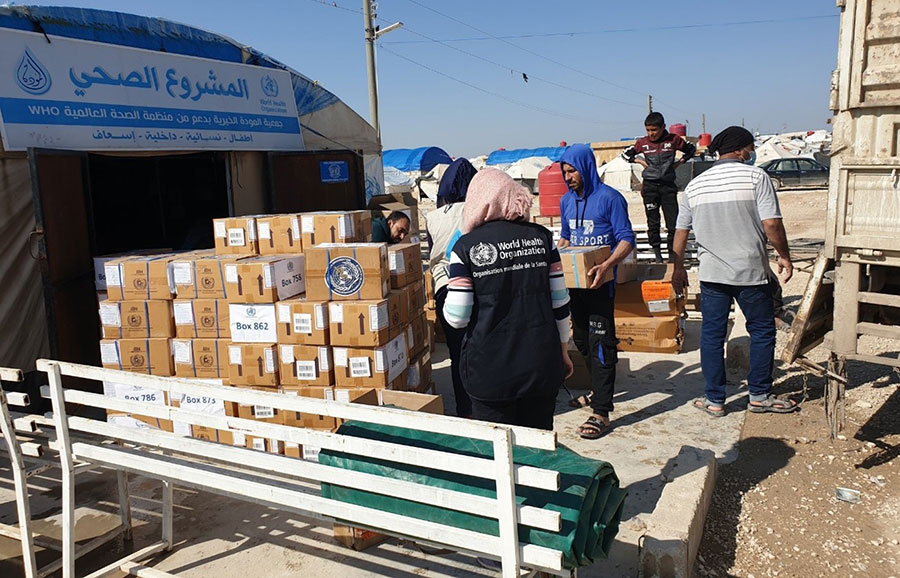 WHO marks 13 years of the Syrian crisis with renewed commitment and support14 March 2024, Damascus, Syria – As the Syrian conflict enters its 14th year, WHO reaffirms its unwavering support to the people of Syria.
WHO marks 13 years of the Syrian crisis with renewed commitment and support14 March 2024, Damascus, Syria – As the Syrian conflict enters its 14th year, WHO reaffirms its unwavering support to the people of Syria.
The prolonged crisis has inflicted immense suffering on the civilian population. A record 16.7 million people in Syria need humanitarian assistance, including 7.2 million who have been internally displaced.
Health needs are overwhelming. But the disrupted health system is struggling to provide life-sustaining and life-saving health services in a context marked by conflict, economic instability, disease outbreaks and natural disasters. Currently, 65% of Syria’s hospitals and 62% of its primary health care centres are either closed or only partially functioning.
“Thirteen years into the crisis, Syria’s health care system is at its highest need and WHO’s support is more critical than ever,” said Dr Iman Shankiti, acting WHO Representative in Syria. “Investing in essential health services is not only about saving lives today but also about preventing a complete collapse of the health system in the future.”
Since the start of the crisis in 2011, WHO has worked with the Ministry of Health and partners to help ensure that critical health care is available to those who need it most. Since the beginning of the crisis, WHO has provided almost 80 million medical treatments, supported over 11 million medical procedures and 3.3 million trauma consultations, and trained about 178 000 health professionals.
Yet, there is still more work to be done. For instance, rates of depression in Syria have doubled over the past year, as more and more people lose their homes and livelihoods and spiral into poverty.
WHO has focused on strengthening mental health services across the country. This work has included integrating mental health treatments into primary health care services and supporting almost 2 million mental health consultations. WHO has also trained tens of thousands of non-specialized health professionals on basic mental health interventions and psychological first aid.
The need for humanitarian health assistance will remain across the country for the foreseeable future. WHO will continue its life-saving operations, targeting the most vulnerable and in need, and at the same time support the country’s longer-term efforts to rehabilitate and rebuild the health system.








